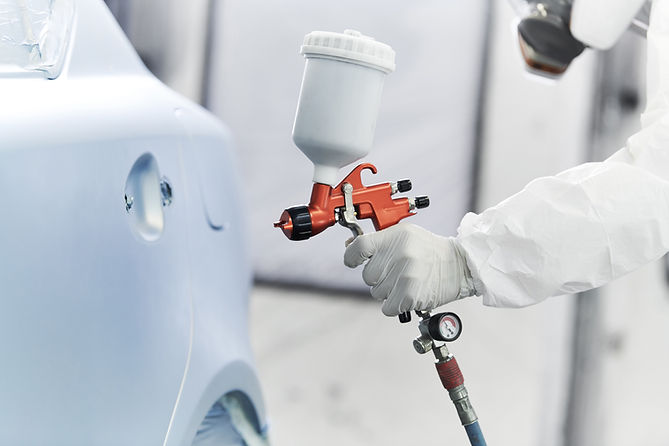
Isocyanate Testing
What are Isocyanates?
Isocyanates are a family of highly reactive, low molecular weight chemicals. They are widely used in the manufacture of flexible and rigid foams, fibers, coatings such as paints and varnishes, and elastomers, and are increasingly used in the automobile industry, autobody repair, and building insulation materials.
HSE recommends that vehicle spray painters undertake biological monitoring annually to check that exposure is being adequately controlled.
How do we test?
Cerebrum Medical Ltd offers UKAS-accredited biological monitoring analysis for HDI and IPDI (found in spray paints), TDI (foams and glues) and MDI (resins and hardeners). To carry out the test we require a urine sample from the employee and this should be taken at the end (within an hour) of a period of potential exposure.
Sampling should reflect normal working practice. Urine samples should be collected in bottles containing a citric acid preservative which Cerebrum Medical Ltd will provide.
What are the health effects?
Isocyanates are powerful irritants to the mucous membranes of the eyes and gastrointestinal and respiratory tracts. Direct skin contact can also cause marked inflammation. Isocyanates can also sensitize workers, making them subject to severe asthma attacks if they are exposed again. There is evidence that both respiratory and dermal exposures can lead to sensitization. Death from severe asthma in some sensitized subjects has been reported. Workers potentially exposed to isocyanates who experience persistent or recurring eye irritation, nasal congestion, dry or sore throat, cold-like symptoms, cough, shortness of breath, wheezing, or chest tightness should see a physician knowledgeable in work-related health problems.
Results
A detailed analysis of the results should take around 2-3 weeks to return to the employer/employee depending upon how many tests are conducted.